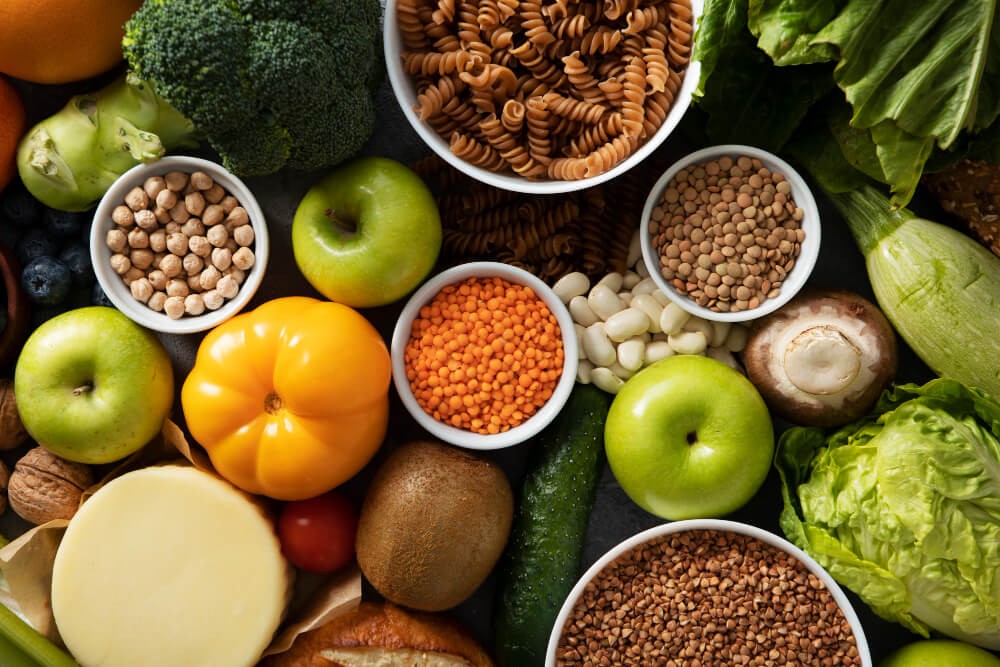Individuals who are overweight or obese have a higher risk of developing heart disease and stroke even if there is no family history of heart disease.
Excessive weight can have detrimental effects on health, particularly on the heart, leading to elevated blood pressure, cholesterol levels, and blood sugar. Consequently, individuals who are overweight or obese should aim to shed excess pounds to mitigate the risk of heart problems and other chronic ailments.
Ways to determine overweight or obesity
An individual is categorized as overweight or obese based on their Body Mass Index (BMI) value.
- BMI 18.5–25 is categorized as healthy (normal)
- BMI above 25 is categorized as overweight
- BMI over 30 is categorized as obese
The formula for calculating body mass index is:
Body weight in kilograms divided by height in meters squared. For example, if you weigh 60 kilograms with a height of 160 centimeters, then the BMI calculation method can be seen as below:
60 (kg) : [1,6 (m)]2 = 23,4
A body mass index of 23,4 falls under the categories of healthy or normal.
Recommended ways to lose weight
There are many ways to lose weight, but some of them are actually harmful to health. For example, there are weight-loss methods that promise instant results without exercising or adjusting diet patterns.
The CDC states that the safest weekly weight loss is between 1-2 pounds or 0.45–0.9 kilograms. Losing more weight than that could potentially lead to more weight gain in the future, as well as other health risks.
To avoid making the wrong choice, let's follow these 10 good habits that work for weight loss:
Increase protein intake
Don't be afraid to increase your protein intake. A high-protein diet can help you lose weight. Protein provides adequate energy intake and a longer feeling of fullness, so it is hoped that the frequency of snacking on unhealthy foods can also be reduced.
You can fulfill your protein needs by eating eggs, chicken, fish, low-fat meat, beans, tofu, tempeh, and so on. Also, pay attention to the way the food is processed. To lose weight, avoid fried foods, especially deep-fried ones.
Limit sugar intake
Sugar is not easy to avoid, but limiting your intake of foods or drinks that are high in sugar content is a good step that is very helpful in weight loss.
Sufficient water need
Water is the only drink that contains no calories and provides positive benefits to the body. You can replace your soda, sugary drinks, or alcohol intake with water. Meeting your water needs can prevent you from experiencing false hunger, a condition that is often felt and causes people to snack between heavy meals. Drinking before meals can also help reduce the amount of food eaten.
Replace snacks with healthy food
The best way to lose weight is by not eating snacks. But if this is difficult to avoid, then you can provide healthy snack options such as roasted peanuts without added salt or sugar, fresh fruits, low-fat yogurt, and so on.
Avoid processed foods
Processed foods such as sausages and ready-to-eat pizza are very tempting. It is important to remember that the calorie content of processed foods is quite large and, when eaten in large portions, will cause you to consume more calories needed by the body.
Avoid high-calorie drinks
Beverages such as soda, canned or bottled fruit juices, and energy drinks contain a significant amount of added sugars that can contribute to weight gain. If you want to lose weight, you should avoid all high-calorie beverages, including bubble tea or lattes that you may often order.
Eat more fiber-rich foods
Fiber-rich foods can help with digestion, which also makes you feel full faster. You can avoid overeating and have bowel movements without complaints of constipation.
Active movement and exercise
Desk jobs often make people sedentary. Next time, try to move more often, for example, by going to work using public transportation so that you have to walk more. Remember that to lose weight, the number of calories your body burns every day must be greater than the number of calories that enter the body.
Get enough quality sleep
Research has found that adequate and quality sleep prevents obesity. When you sleep, your body's cells restore themselves and your metabolism improves. Lack of sleep can have adverse health effects and can affect your metabolism and blood sugar levels in the body.
Following a healthy diet to lose weight is sometimes not easy. For this one, you can talk to a nutritionist who will help you find a healthy yet enjoyable diet that suits your body's needs.
If you need medical advice or consultation, you can either visit a doctor or make use of the consultation features that are available in the Ai Care application by downloading the Ai Care application from the App Store or Play Store.
Looking for more tips and health tricks, first aid, and home remedies? Click here!
- Sean Edbert Lim, MBBS
Jenna Fletcher (2019). 20 ways to lose weight safely. Available from: https://www.medicalnewstoday.com/articles/324123
American Heart Association (2022). How to Manage Weight. Available from: https://www.heart.org/-/media/Healthy-Living-Files/LE8-Fact-Sheets/LE8_How_to_Manage_Weight.pdf
CDC (2023). Losing Weight. Available from: https://www.cdc.gov/healthyweight/losing_weight/index.html
Tyler Wheeler (2022). Exercise and Weight Loss. Available from: https://www.webmd.com/fitness-exercise/exercise-weight-control











